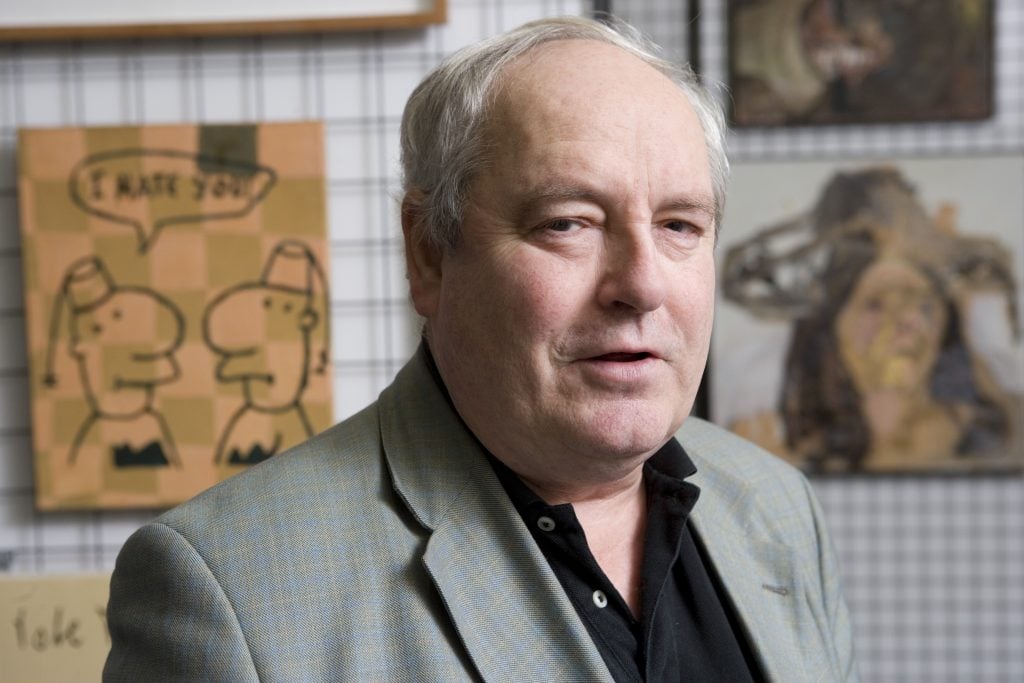Art World
Harald Falckenberg, ‘Enfant Terrible’ of Contemporary German Collecting, Has Died at Age 80
The Hamburg-based collector amassed over 2,400 works during his life, which live in his private collection outside of the city.

The Hamburg-based collector amassed over 2,400 works during his life, which live in his private collection outside of the city.

Annie Armstrong

German art collector Harald Falckenberg, who amassed a collection of around 2,400 works over his 80-year life, died this week in Hamburg, according to German newspaper Zeit. A cause of death was not given.
Falckenberg began his collecting practice in the 1990s in his native Hamburg, originally focusing on contemporary work and then moving on to emphasize an array of German artists who were mainly active in the 1980’s. He extensively collected work by Dieter Roth, Franz West, Otto Mühl, Werner Büttner, Albert Oehlen, and Martin Kippenberger, among others. Vocationally he was a lawyer, but Falckenberg’s passion for art led him to work as a professor of art theory at the Academy of Art in Hamburg, and he wrote several academic texts on the subject of art.
His collection is currently housed in the privately-owned Phoenix Art Foundation outside of Hamburg. Aside from the nucleus of German artists, Falckenberg collected works from a group of playful American conceptual artists that includes Mike Kelley, Richard Prince, John Baldessari, and Paul McCarthy, as well as a handful of other Northern European artists like Dieter Roth and Öyvind Fahlström.
Much of his sensibility came from outsider perspectives; Falckenberg characterized his own taste as “critical art that deals with social problems.” He was once nicknamed the “enfant terrible” of contemporary European collectors, due to his emphasis on works that critique social norms, including those of the art world, often employing grotesque or extreme imagery.
Hamburg’s senator for culture, Carsten Brosda, told Ziet that “Harald Falckenberg’s death tears a gap whose extent we can hardly guess at the moment. Even if his work continues to shine—the art world will be different without him.”
“Good collectors collect in their own time,” Falckenberg told Art + Living in 2019. “It does not make much sense, for example, to start collecting Warhol today. The good works are all gone.”
More Trending Stories:
Revealed: The Major Mystery Consignors of New York’s Multi-Billion-Dollar Fall Auction Season
Christie’s Pulled Two Works by a Prominent Middle Eastern Artist From Sale After a Complaint